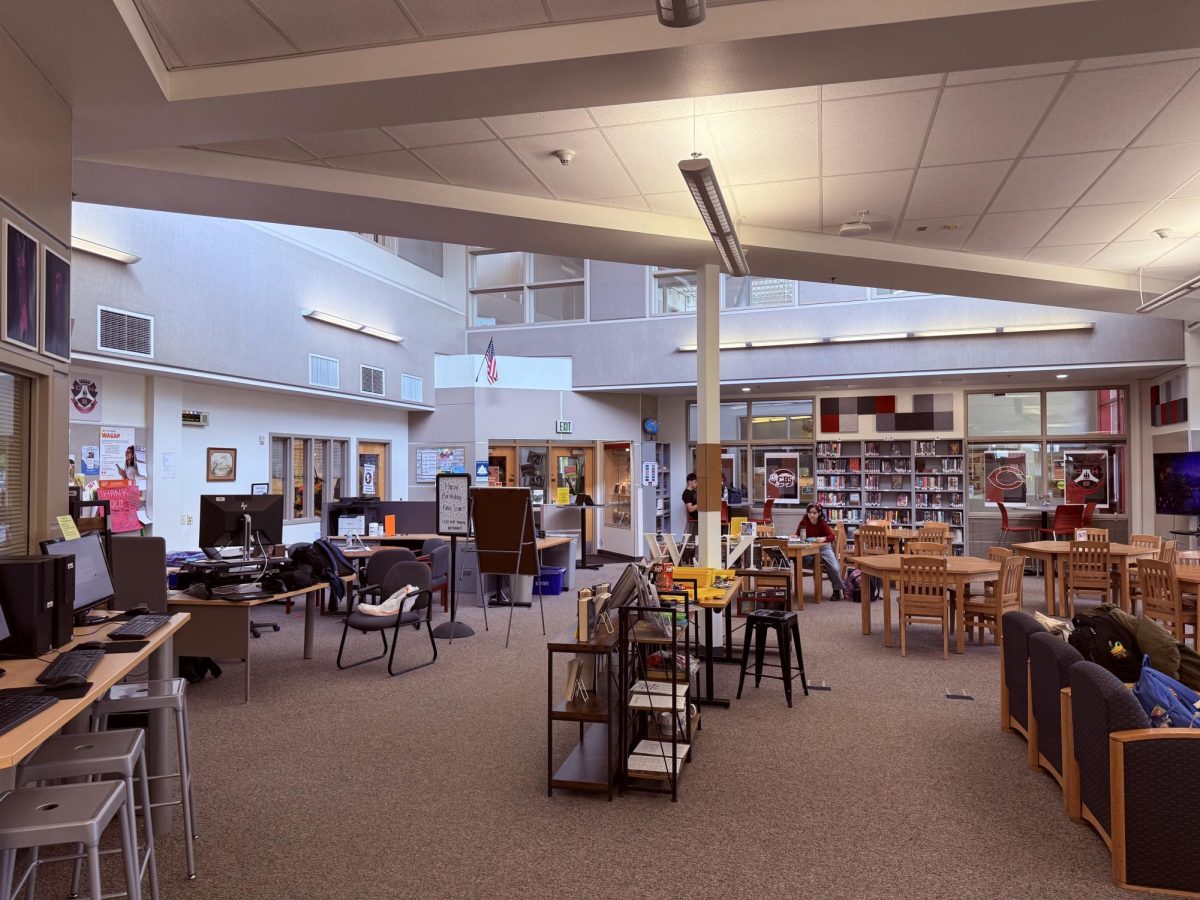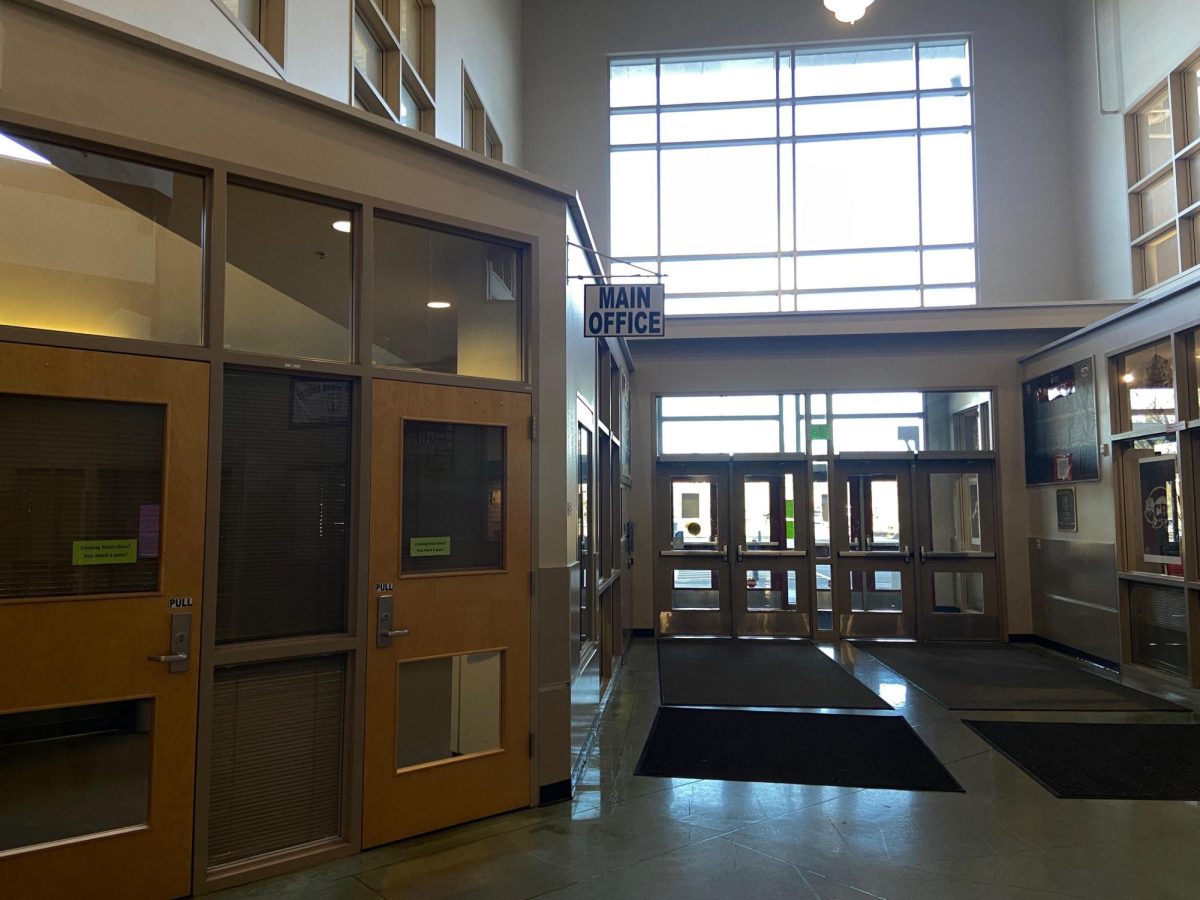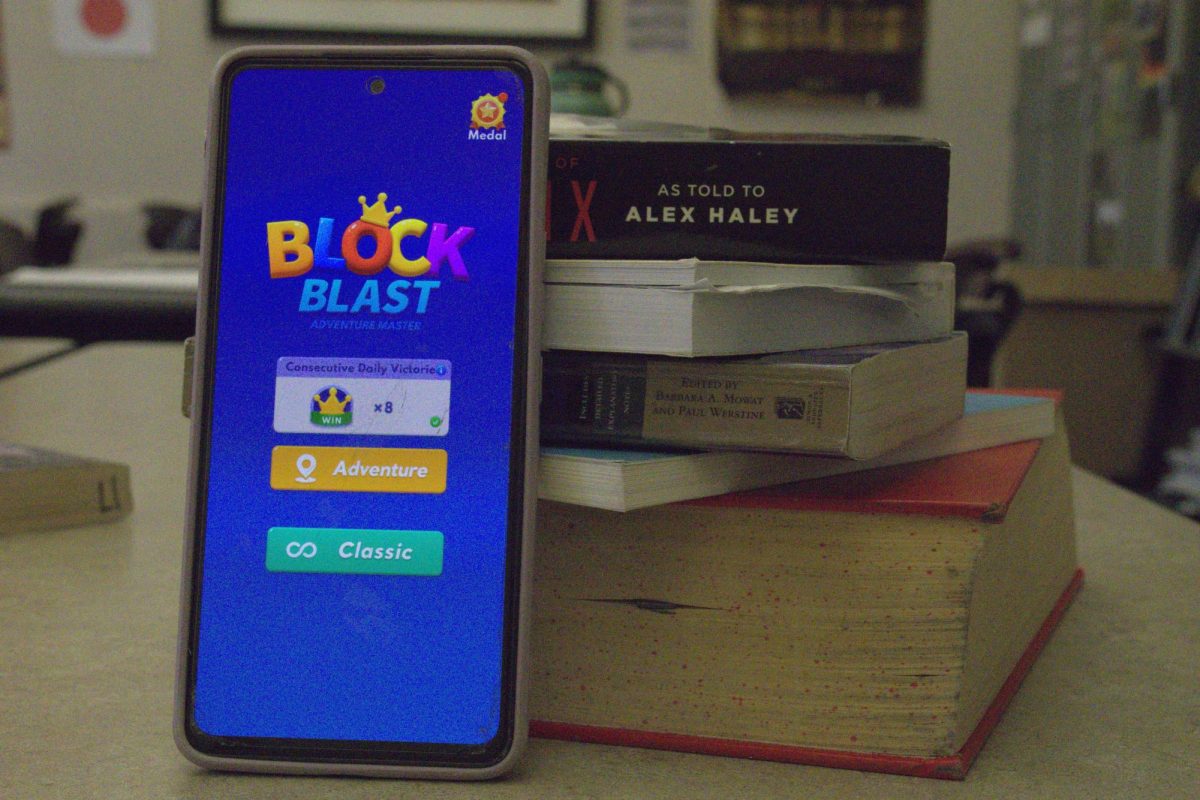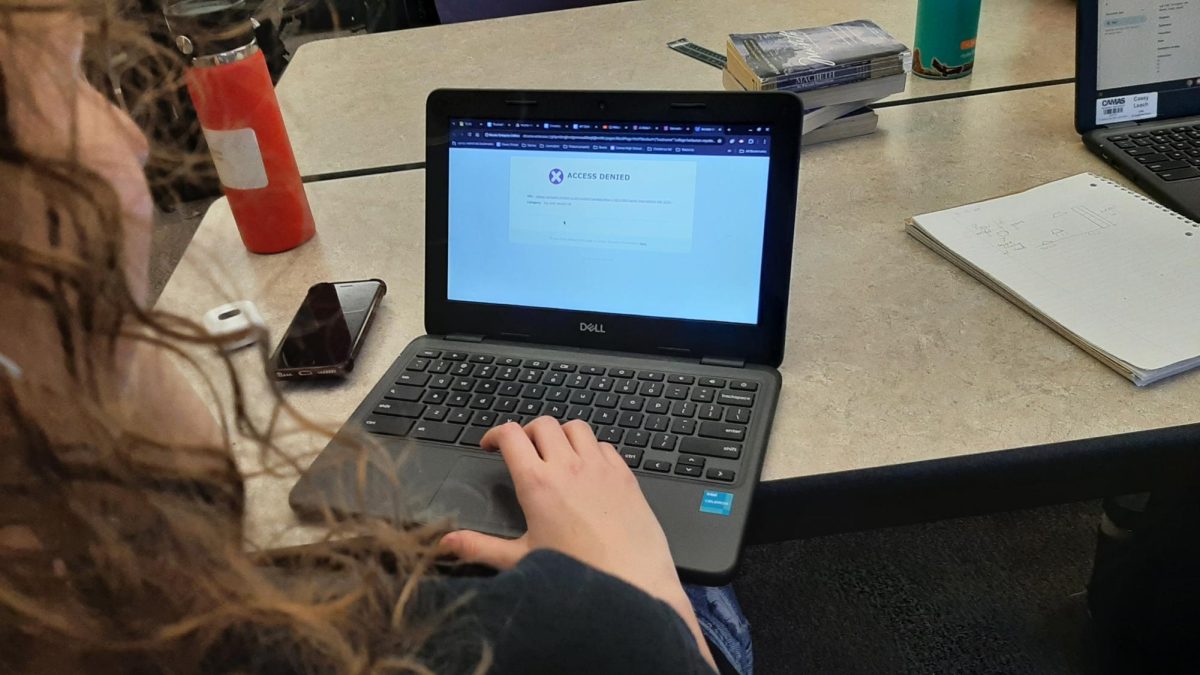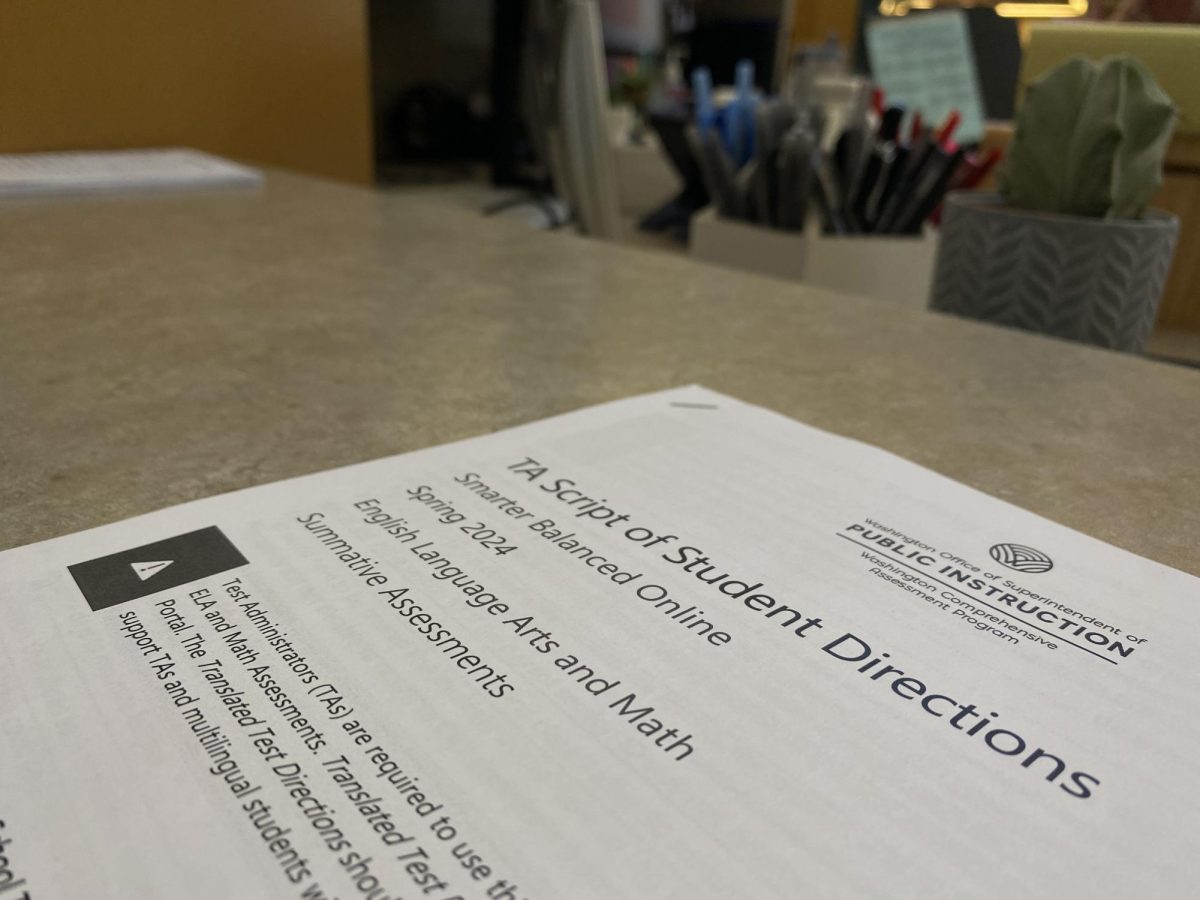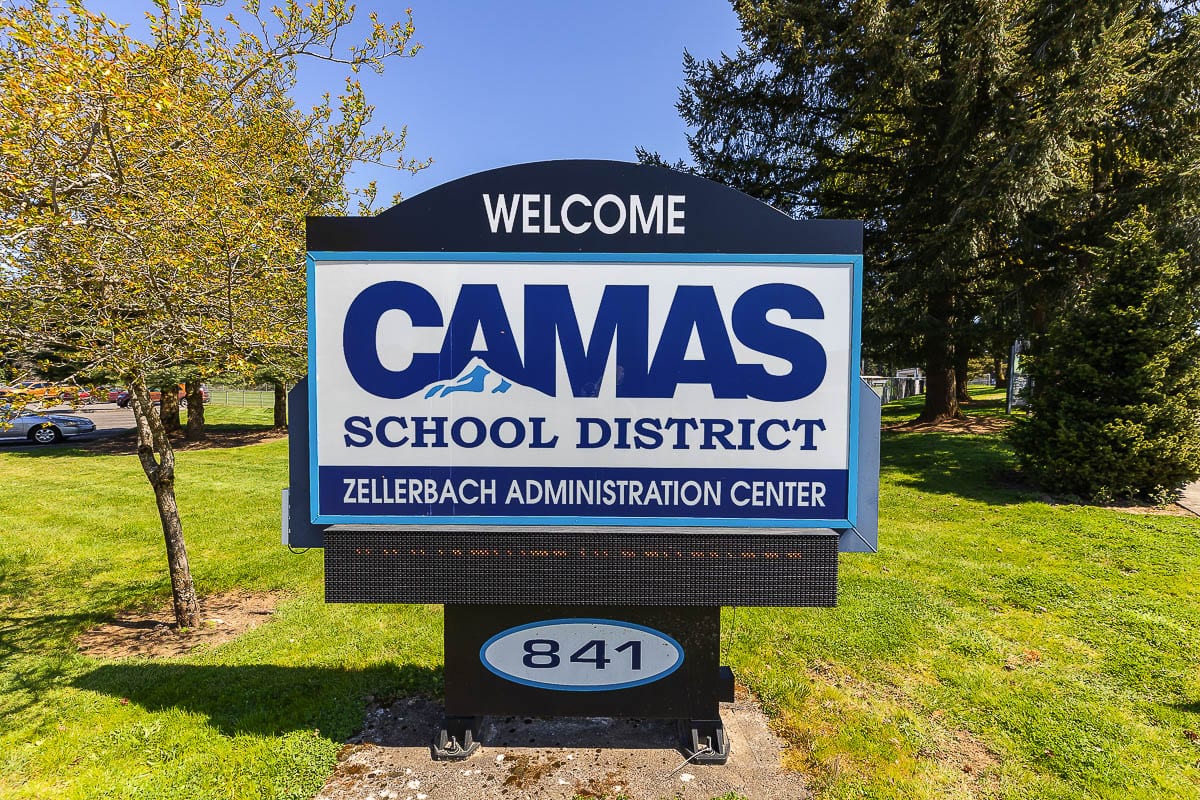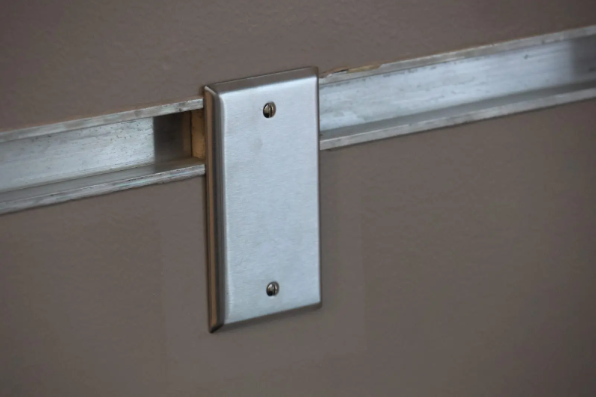The Smarter Balanced Assessment Consortium (SBAC) is a standardized test used by many schools across the United States to assess college and career readiness through common core national standards within math and ELA. Camas High School (CHS) consistently ranks above the state average in the SBAC, a feat that is by no means accidental.
CHS teachers like Tom Sawyer, a tenth-grade honors English teacher, often prepare students for the assessment gradually and purposefully throughout the year to achieve these scores.
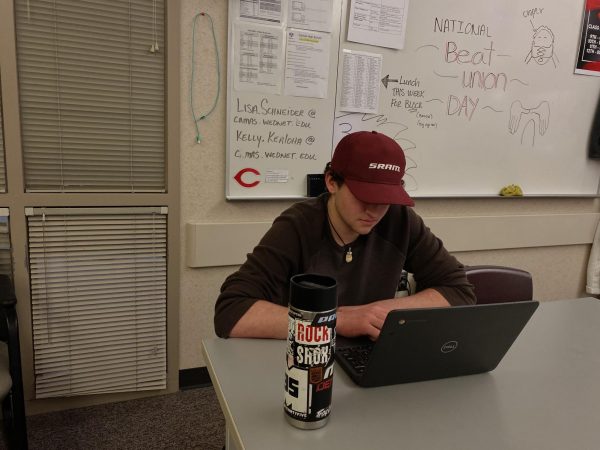
“I kind of beat them over the head with fishbone and ted,” Sawyer said.
Sawyer also distributes practice tests in the weeks leading up to the exam and crafts test questions throughout the entire year to resemble the types of questions presented in the English portion of the SBAC.
“I try to slow them down and help them learn to look for a little bit of detail,” Sawyer said.
Despite CHS having obviously achieved its goal of high scoring within SBAC testing, many still question how worthy a goal is in the first place and criticize the SBAC as a whole.
Critics of the SBAC suggest that it could potentially harm children’s mental health and that time taken for preparation for the test takes away from class material.
“I think it’s a waste of both of our time,” CHS junior Titan Brody said. “We could honestly be doing something a lot better with our lives like learning more real-world things instead of learning how to just prepare for one singular test.”

This sentiment was also echoed by CHS junior Nikko Speer.
“It can cause a lot of stress,” Speer said. “I’d rather have hands-on learning rather than just throwing paperwork at us and studying for it.”
Because of this large pushback against the SBAC, there have been many large movements to reform the test in ways that would prioritize student and teacher satisfaction over standardized quotas. Many states such as Mississippi, Utah, Pennsylvania, and Wyoming have even abandoned the test altogether based on these issues.
Washington State requires that each district administer the test to its students, making it highly unlikely that CHS will withdraw or reform the test at any time in the foreseeable future. As voiced by students, this forces CHS to walk a confusing line between maintaining the scores that facilitate its highly respectable academic reputation and the desires of the students, teachers and parents that the school serves.



